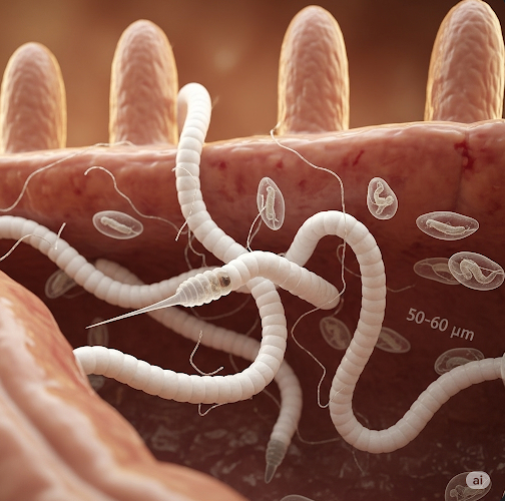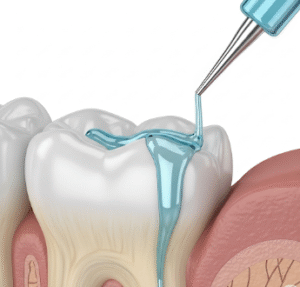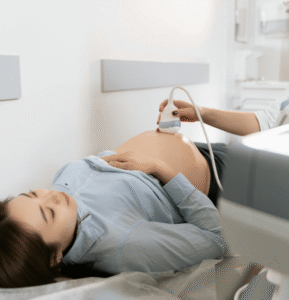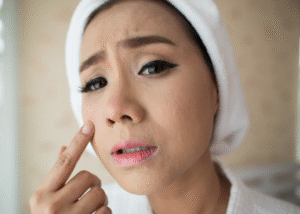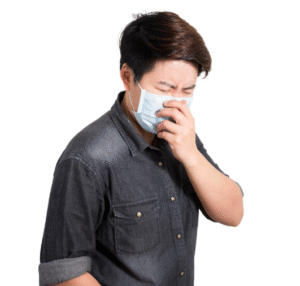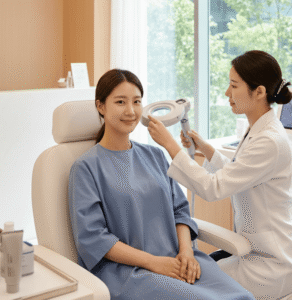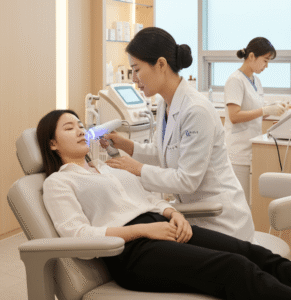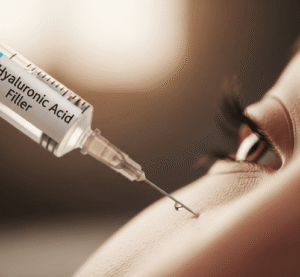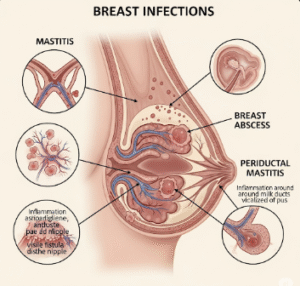Overview
Pinworm infection, also known as enterobiasis or oxyuriasis, is one of the most common types of intestinal parasitic infections, particularly among children. It is caused by a small, white, thread-like roundworm called Enterobius vermicularis. The infection is typically harmless but can cause intense itching and discomfort around the anal area. It spreads easily, especially in close-contact environments like schools, daycare centers, and households. With proper treatment and hygiene, it is easily curable.
What is Pinworm Infection?
Pinworm infection occurs when the tiny parasitic worms infest the lower intestinal tract, especially the colon and rectum. Female pinworms migrate to the anus at night to lay eggs, causing the hallmark symptom — anal itching. The eggs are highly contagious and can be transferred from contaminated surfaces, hands, or clothing. Infections are most prevalent in children between 5 and 10 years old but can affect individuals of any age.
Symptoms
The most common symptom of pinworm infection is intense itching around the anus, especially at night. Other symptoms may include:
- Irritability or restlessness, particularly in children
- Difficulty sleeping
- Redness or rash around the anal area from scratching
- Loss of appetite
- Weight loss (in rare or prolonged infections)
- Abdominal pain or discomfort
- Pinworms visible in stool or around the anus (tiny white worms, about 2–13 mm long)
- In females, vaginal itching or discharge may occur if worms migrate to the genital area
Causes
Pinworm infection is caused by swallowing or inhaling microscopic pinworm eggs, which are then transferred to the gastrointestinal tract. Common causes of transmission include:
- Touching contaminated hands, bedding, or surfaces
- Sharing towels, clothing, or toys
- Scratching the anal area and then touching the mouth or food
- Ingesting contaminated food or drinking water
- Contact with infected individuals, especially in schools or crowded settings
The eggs can survive on surfaces for up to 2–3 weeks, making reinfection common without proper hygiene.
Risk Factors
Anyone can get pinworm infection, but it is more likely to occur in certain situations:
- Children, particularly ages 5–10
- Family members or caregivers of infected children
- Crowded living environments (e.g., dormitories, orphanages)
- Poor hand hygiene
- Institutional settings, such as daycare centers and schools
- Nail-biting or thumb-sucking habits
Complications
Though usually mild, untreated or severe pinworm infections may lead to complications such as:
- Secondary bacterial infections from scratching
- Sleep disturbances or behavioral issues in children
- Vaginitis or urinary tract infections (UTIs) in females
- Appendicitis (rarely, due to migration of worms)
- Intestinal inflammation or irritation in chronic cases
Prevention
Good hygiene practices are key to preventing pinworm infections and stopping reinfection. Prevention tips include:
- Wash hands frequently with soap and water, especially before eating and after using the toilet
- Keep fingernails trimmed and discourage nail-biting or scratching
- Bathe daily and change underwear every morning
- Wash bed linens, pajamas, and towels in hot water regularly
- Clean and disinfect household surfaces frequently
- Encourage children to avoid sharing personal items like towels or clothing
- Treat all household members if one person is infected to prevent reinfection
Treatment Options in Korea
South Korea offers accessible and effective treatment for pinworm infections, typically through outpatient clinics or pediatric care centers. Treatment options include:
- Antiparasitic medications:
- Mebendazole, albendazole, or pyrantel pamoate are commonly prescribed oral medications
- A second dose is usually given 2 weeks after the first to eliminate any newly hatched worms
- Simultaneous treatment of family members: Even if asymptomatic, all close contacts are often treated to prevent reinfection
- Supportive care:
- Anti-itch creams may be used to relieve irritation
- Recommendations for strict hygiene to accompany drug therapy
- Follow-up exams: In recurring or persistent cases, stool tests or tape tests (using adhesive to collect eggs near the anus in the morning) may be recommended
- Pharmacy access: Over-the-counter medications for pinworm are available in many pharmacies, but medical consultation is advised for accurate dosing
- Multilingual pediatric clinics: Major hospitals like Severance Children’s Hospital, Samsung Medical Center, and Asan Medical Center offer English-speaking pediatricians and international patient services
With modern diagnostics and hygiene education, pinworm infections are effectively managed in Korea, ensuring fast relief and reduced risk of recurrence.

